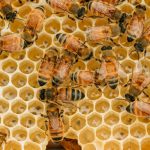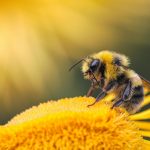Beekeeping, or apiculture, is a critical component of Kenya’s agricultural sector. It plays a vital role in enhancing food security, improving biodiversity, and sustaining rural livelihoods. Bees are key pollinators for many crops, including coffee, avocado, passion fruit, and sunflower, which significantly contribute to the country’s economy. By pollinating these crops, bees increase their yield and quality, directly impacting food production and agricultural productivity. Beyond pollination, beekeeping provides numerous economic opportunities for small-scale farmers, women, and youth, offering an additional source of income through the sale of honey, beeswax, propolis, and other bee-related products.
Despite its potential, beekeeping in Kenya faces numerous challenges that threaten its sustainability and growth. These challenges range from climate change and pest infestations to a lack of forage, adulterated honey in the market, and limited access to modern beekeeping equipment. Addressing these issues is essential to safeguarding the future of beekeeping and, in turn, the broader agricultural landscape in Kenya. Through sustainable practices and
innovative solutions, beekeepers can overcome these obstacles and ensure the longevity of this vital industry.
- Pests and Diseases
Pests and diseases pose a severe threat to bee colonies in Kenya. Common pests include the Ant, Varroa mite and wax moth, which can decimate hives if not controlled. Beehives are especially appealing to ants, and one of the major challenges I personally have faced as a beekeeper. If uncontrolled they eat bee larvae, cause colony collapse and even take over a hive as the bees are unable to fight off their invasion.
Mitigation: Regular hive inspections and adopting integrated pest management (IPM) practices can help control pests and diseases. Beekeepers should use organic treatments, such as essential oils and botanical extracts, to minimize the impact of chemicals on bees. I have successfully mitigated the ants from invading my hives by using milking jelly on the stands as it has no odor and is affordable.
- Lack of Forage
A significant challenge for beekeepers in Kenya is the lack of adequate forage due to deforestation, urbanization, and land use changes. Bees rely on diverse flowering plants for nectar and pollen, but the shrinking natural habitat is limiting the availability of these essential resources.
Mitigation: Planting flowering plants with commercial value, such as sunflower, passion fruit, castor, avocado, and oranges, can provide a dual benefit. These plants not only offer bees a steady supply of forage but also generate additional income for farmers through the sale of fruits, seeds, or oils. Beekeepers looking into increasing their forage can partner with companies who offer contract farming for plants such as sunflower and castor which will reduce their costs and provide a ready market for their produce.
- Lack of Adequate Training and Knowledge
Many Kenyan beekeepers lack access to adequate training and knowledge on modern beekeeping practices. This lack of information results in poorly chosen apiary sites, poor hive management, low honey yields, and high colony losses. Traditional methods, while valuable, often do not address contemporary challenges effectively.
Mitigation: Establishing local training programs and extension services can help bridge this knowledge gap. Government agencies, non-governmental organizations, and private sector players should collaborate to offer workshops, online courses, and field demonstrations on sustainable beekeeping practices. Encouraging mentorship programs where experienced beekeepers share their knowledge with novices can also foster community learning and improve overall beekeeping standards.
- Lack of Equipment
Access to modern beekeeping equipment is another significant challenge for many Kenyan beekeepers. Essential tools such as protective gear, smokers, and honey extractors are often expensive and out of reach for small-scale farmers. This lack of equipment limits the efficiency and safety of beekeeping operations.
Mitigation: Beekeepers should seek support from government institutions like the Kenya Agricultural and Livestock Research Organization (KALRO) and the Kenya Industrial Research and Development Institute (KIRDI), which provide access to affordable and most times free equipment, training, and technical support. Cooperative societies can also pool resources to purchase equipment in bulk or establish community resource centers where tools and machinery are shared among members.
- Limited Access to Markets and Fair Pricing
Kenyan beekeepers often struggle to access profitable markets due to limited information, lack of processing facilities, and inadequate marketing skills. As a
result, many especially in the rural areas sell their honey at low prices to middlemen, missing out on better profits.
Mitigation: To overcome these challenges, beekeepers should form cooperatives or associations to collectively market their products, negotiate better prices, and access larger markets. Investment in local honey processing facilities can add value to raw honey, creating additional revenue streams. Additionally, leveraging digital platforms and social media can help connect beekeepers directly with consumers, reducing dependence on intermediaries.
- Adulterated Honey in the Market
The presence of adulterated honey is a major concern in Kenya. Unscrupulous sellers mix pure honey with sugar syrup or other additives, compromising quality and consumer trust. This issue not only affects market prices but also damages the reputation of genuine honey producers.
Mitigation: To tackle this problem, the government and relevant stakeholders should implement stricter quality control measures and certification processes. Public awareness campaigns can educate consumers on identifying pure honey, while establishing certified honey testing laboratories will ensure only high-quality honey reaches the market. Beekeepers should also advocate for better labeling and traceability practices to distinguish their products from counterfeit honey.
- Pesticide Use and Habitat Loss
The use of harmful pesticides and the ongoing loss of natural habitats due to agricultural expansion and deforestation severely impact bee populations. Pesticides can poison bees directly or contaminate their food sources, while habitat loss reduces the availability of forage.
Mitigation: Encouraging the adoption of organic farming practices and promoting pesticide regulation can help protect bees. Conservation efforts, such as establishing bee-friendly zones and planting wildflowers and trees, can create safe havens for bees to thrive. Awareness campaigns to educate farmers on the importance of bees and the dangers of certain pesticides are also crucial.
- Climate Change and Environmental Factors
One of the most significant challenges facing beekeepers in Kenya is climate change. Unpredictable weather patterns, prolonged droughts, and extreme temperatures disrupt the natural cycle of flowering plants, which are crucial for bees’ nectar and pollen sources. These conditions lead to reduced honey production and can even cause bee colonies to collapse.
Mitigation: To counter these effects, beekeepers should adopt climate-smart practices. Planting indigenous, drought-resistant flowering plants such as African Kale, Amaranth, and Spider Plant can help ensure a steady supply of nectar and pollen throughout the year. Additionally, setting up water sources near apiaries and employing shade structures to protect hives from excessive heat can mitigate the effects of extreme weather.
Conclusion
Beekeeping in Kenya holds great promise but is fraught with challenges that require concerted efforts to overcome. By addressing issues like forage scarcity, honey adulteration, lack of equipment, and habitat loss, beekeepers can create a more sustainable and profitable future. Sustainable beekeeping is not just about preserving bee populations but also about safeguarding food security, biodiversity, and rural livelihoods in Kenya.










